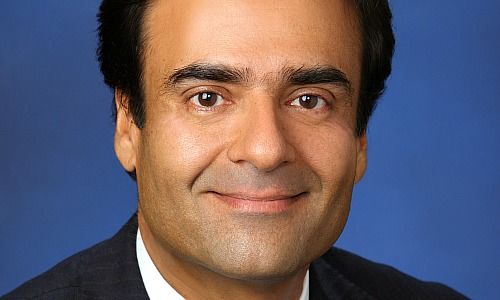We are definitely at a place where we want to continue to grow organically and reach more clients across the region.
In other words, smaller private banks will face tough times?
I think there needs to be a unique balance between being nimble in your client interactions and in finding distinctive investment opportunities, but equally important is having the scale to invest in things like marketing, technology, controls, and cybersecurity.
Can you elaborate a bit on that?
In the past UHNWIs would have 8 to 10 private banks, today they tend to focus on 3 to 4 private banks. Those players that can achieve a greater share of mind with the clients are best poised to become their trusted advisors. Understanding a client’s interests and goals – whether it be philanthropic goals or giving strategies.
How do you address the next generation of wealthy clients in Asia?
The generational transfer of wealth is a big focus for us. For more than 20 years, we have run two programs focused on emerging family leaders. Investment principles focus on the fundamentals of investing, the key investment management concepts and laying the groundwork for financial leadership skills.
«I explained that this may not be the best strategy»
Sustaining Family Enterprise focuses on helping the adult children of our matriarchs and patriarchs who will soon play leadership roles in the management of their family's wealth – whether in a family-owned business, a family office, a family foundation, or as overseers of asset management – understand and address issues of leadership and become successful stewards of the family enterprise. Both programs are global and take place around the world.
We also share studies with clients of best practices for moving wealth from one generation to the other and how we can be effective in that; what the family governance should look like; and how a family office should look like.
Every bank is pretending that.
Let me give you an example of generational wealth transfer in action. We recently had a client who had an early investment that he had made and went public and was then sitting on a 150 million dollar stake. He told me that he was advised by another provider to sell 50 million dollars through the market.
I explained that this may not be the best strategy – putting this amount in the market and creating potential market volatility in this security. We suggested a different kind of structure to put in place for this transaction.
So?
We see a lot of those types of situations and are able to provide advice in this regard. [H]aving been in the industry for more than 30 years, I firmly believe that our capabilities are among the broadest and extensive in the industry
Do clients today care more about what they invest in?
Yes, definitely, ESG is gaining a lot more traction. We see this in private equity and direct investments.
«There’s been a lot of buzz about this in the news»
Clients are looking at private deals in healthcare, payment services, fundraising platforms, and startups. People see the growth path of these businesses, and that’s why they want to be part of that story.
Are wealthy clients interested in crypto assets?
There’s definitely been a lot of buzz about this in the news. But we haven’t seen much interest from our clients. What we have seen client interest in is in February, our firm announced JPM Coin becoming the first U.S. bank to create and successfully test a digital coin representing a fiat currency.
«We can only speculate»
JPM Coin is based on blockchain-based technology enabling the instantaneous transfer of payments between institutional clients. We continue to believe blockchain will play a transformative role in business which is why the firm is using it and building multiple blockchain services.
The trade war between the U.S. and China has not cooled since the recent G20 Summit in Japan. How do you face this situation as a U.S. bank dealing with more and more with very wealthy clients from China?
If you look at China and at its history, it is very clear that wealthy Chinese like to learn from the companies and individuals who have tenure and experience in operating successful enterprises. So despite any sort of trade war, clients in this region still want to learn from Western companies known in China like Starbucks, Apple and other entities. J.P. Morgan is fortunate to be among those companies that have been in China for decades.
What might happen to these firms?
We can only speculate. But I can tell you the proof is in the pudding. We recently held our Annual Morgan Tech Exchange where we spotlight innovative technologies and companies mostly located in Shenzhen.
«There is, in fact, an opportunity for Singapore should tensions escalate»
The turnout we received from both clients in the Asia Pacific region – and those traveling from the Western part of the United States – was incredible. Our best attended to date.
Don’t you think that the Chinese authorities will prohibit their citizens to deal with U.S. banks?
None of us has a crystal ball, but I don’t believe that is something that would manifest.
Will Singapore benefit from the on-going tensions between the U.S. and China?
Singapore is extremely well placed, to the extent that the city-state has recently been voted as the most competitive country in the world. So there is, in fact, an opportunity for Singapore should tensions escalate.
You are in wealth management for more than three decades. What do you still want to achieve?
You are never done. There is a lot ahead of me. But right now, I personally want to bring down my golf handicap. And like our firm, I always want to progress and do more for our clients, colleagues, and communities.
Rahul Malhotra attended Delhi University where he obtained a bachelor’s degree in economics. Prior to joining J.P. Morgan in 2010, he was head of wealth management for Asia at Merrill Lynch. Previously, he spent 20 years at Citibank, based in Dubai, London, and Singapore. At Citibank, he held various senior leadership positions including head of retail banking in Asia and global head of non-resident Indians at Citibank. As the head of Southeast Asia and the NRI markets at J.P. Morgan based in Singapore, he is involved in all aspects of the private banking business. From talent management, policy implementation to philanthropic events and recruitment, his role is all-encompassing.
- << Back
- Page 2 of 2


















